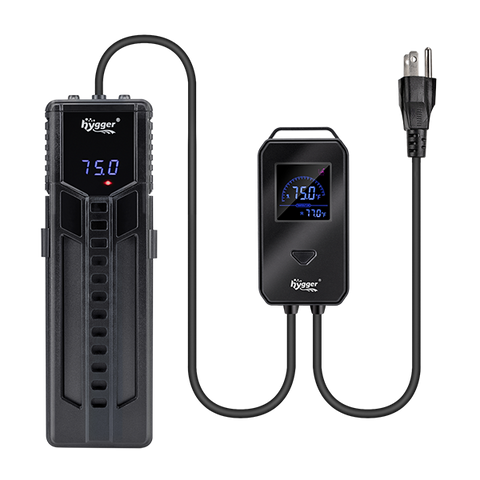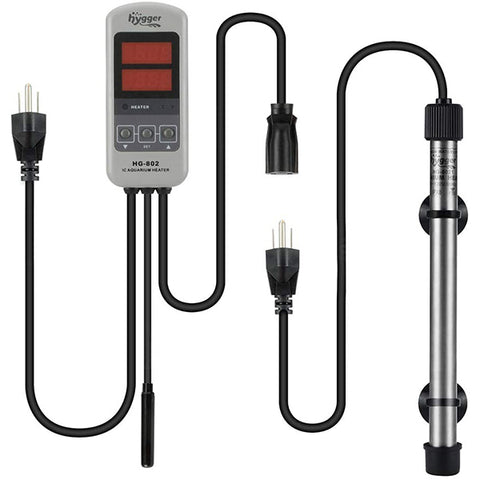The betta fish has been called one of the most beautiful freshwater fish in the world. Their bright colors and large fins make them very appealing to hobbyists and aquarists alike, but there are still certain things about them that can be confusing.
One question that often comes up when talking about bettas is whether or not they need heaters in their aquariums, especially in colder climates where the temperature of the water might get too low during certain times of the year, or during times when the temperature of your home drops too low, such as during winter months.
Answer to "Do Bettas Need Heaters"
Betta fish, or Siamese fighting fish, are a popular and colorful freshwater aquarium species. Because they come from tropical waters, they appreciate warmer water than many other types of fish.
But not all betta owners need to provide heaters for their pets. The answer depends on where you live and how warm your home is during the winter months. If you’re unsure if your betta needs a heater in its tank, read on for more information about betta water temperature requirements.
What makes bettas so hardy? As mentioned above, betta fish hail from Thailand and Cambodia—countries with tropical climates. They have adapted to hot weather by growing thick scales that protect them from predators as well as natural elements like wind and rain.
In addition, these fish can tolerate low oxygen levels in water because they can breathe air through their gills even when there isn’t much dissolved oxygen present in their environment. These adaptations allow them to survive without any special care beyond what most people give them at home.
Conditions when a heater is required for betta fish
Bettas need a heater in some cases, such as changes in their environment, sudden shifts in the air, or water temperature. These situations can make them sick or even kill them if care isn’t taken to regulate it!
However, they aren’t any different from other cold-blooded animals in that their body temperature needs to be regulated. In fact, a steady water temperature between 72 and 78 ℉ is best for betta's health. ! If you want your betta to live a long, healthy life, you need to provide him with a tank with stable temperatures.
Possible dangers of not using heaters in required conditions
If you don’t provide your vetta with a suitable temperature in certain situations, you may cause some serious issues. Without a proper tank temperature, your vetta’s immune system can become weakened and its liver can deteriorate. Both of these things will make it more susceptible to infections and diseases. Don’t take any chances – invest in a good heater as soon as possible. It will be well worth it.
Here are some signs that your vetta is sick: You might notice that your vetta has been acting differently than usual or hasn’t been eating for days.
Some other signs include unusual redness around their gills; lack of energy; lethargy; loss of appetite; cloudy eyes; pale coloration; swelling on their body or fins, etc.
These are all symptoms that indicate something is wrong with your fish and they need immediate medical attention from an expert vet. The sooner you get them help, the better chance they have at survival.
So, don’t wait – go to your local pet store and buy a heater today! Then enjoy watching your betta swim happily in his warm new home.

The ideal temperature for a betta fish tank
Since bettas are tropical fish, they need a heated aquarium to survive. Temperatures between 70-82 ℉ (21-28 ℃) are ideal for most bettas. The minimum temperature you should keep your tank at is 68 ℉ (20 ℃). Keep in mind that when water heats over 82 ℉ (28 ℃), bacteria builds up more quickly.
Different types of fish heaters
When you’re setting up your betta fish aquarium, the most important things to keep in mind are cleanliness and temperature. A betta fish need a heater in the case of low temperature in a fish tank. You want your tank to stay clean so that your fish doesn’t get sick, and you want to be sure that your heater is working and set at the right temperature so that it’s neither too hot nor too cold for your betta fish.
One of many pieces of equipment you need to consider when setting up your aquarium is an aquarium heater. There are three main types of heaters:
1. Submersible heaters
These small, compact heaters sit inside your tank (though most can be placed outside as well). They provide consistent warmth through water-to-water contact. This type of heater tends to be inexpensive but doesn’t offer precise temperature control.

2. External/hang-on heaters
External heaters sit outside of your tank but rest on top of it or hang above it via suction cups or brackets. Their flexible design allows them to be positioned in any way necessary. However, because they aren’t submerged in water like submersibles, external heaters tend to cost more than their counterparts.
3. In-line heaters
In-line heaters connect directly to your filter system and are used primarily for larger tanks that require higher temperatures than submersibles can produce. The major downside of in-line heaters is that they must be constantly monitored so that they don’t overheat your tank.
Conclusion
Betta fish can survive in colder temperatures as long as they have sufficient oxygen levels and clean water, but most owners choose to keep them warm.
This can be done by keeping your betta tank at about 80 ℉ (27 ℃) during the day and 70 ℉ (21 ℃) at night. This may sound like a large temperature fluctuation, but it’s very similar to what your Betta would experience living in nature.
This beta fish guide gives the answers to a common question, do betta fish need a heater. Actually, a heater is not necessary for bettas if you are able to maintain these relatively stable temperatures.
However, if you live in an area that experiences more extreme weather conditions or you want to ensure that your fish is always kept at a consistent temperature, then a heater will come in handy.


Comments (0)
Back to Supplies & Equipment